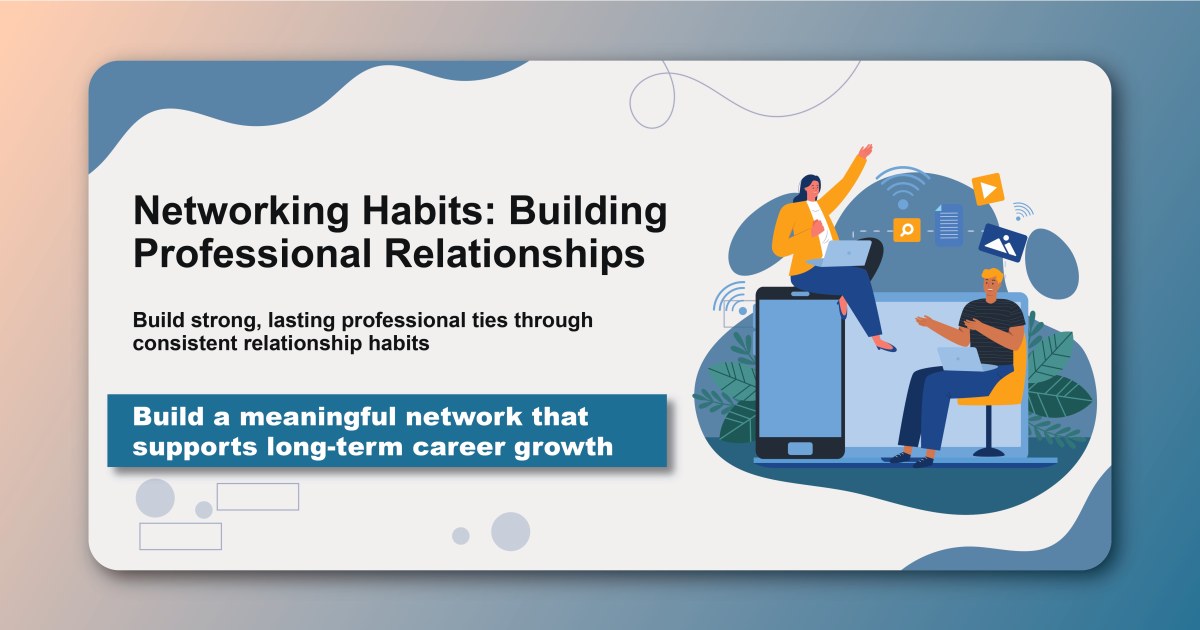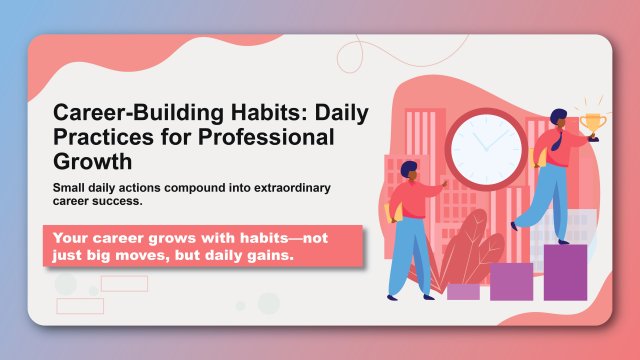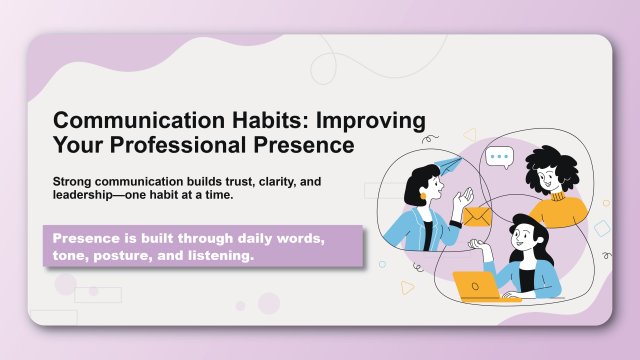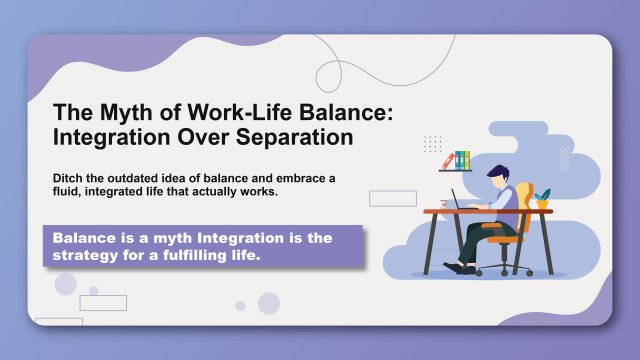Professional networking is one of the most powerful tools for career advancement, business growth, and personal development, yet many people approach it sporadically or with discomfort. The key to effective networking lies not in attending occasional events or making superficial connections, but in developing consistent daily habits that build authentic, mutually beneficial relationships over time. Great networkers understand that networking is not about collecting contacts—it's about cultivating meaningful connections that create value for everyone involved.
The most successful professionals treat networking as an ongoing practice rather than a task they turn to only when they need something. They understand that the best time to build relationships is before you need them, and that the most powerful networks are built through consistent, genuine interactions that focus on helping others rather than just advancing personal interests. This approach creates a foundation of trust and reciprocity that makes networking feel natural and authentic rather than forced or transactional.
Effective networking habits are rooted in the principle of value creation. Instead of focusing on what you can get from others, successful networkers focus on what they can give—whether that's knowledge, connections, opportunities, or support. This mindset shift transforms networking from an uncomfortable self-promotion activity into a meaningful practice of building relationships and creating mutual value.
The digital age has expanded networking opportunities beyond traditional face-to-face interactions. While in-person connections remain valuable, modern networking includes social media engagement, virtual events, online communities, and digital relationship maintenance. The key is to use these tools strategically and authentically, maintaining the human element that makes networking meaningful while leveraging technology to expand your reach and maintain connections.
This comprehensive guide explores the daily habits that turn networking from an occasional activity into a consistent practice that builds lasting professional relationships. Whether you're naturally outgoing or more introverted, these habits will help you develop a robust professional network that supports your career goals and creates opportunities for mutual growth and success.
The Foundation of Strategic Networking
Understanding Network Value
Relationship Quality Over Quantity Focus on building deeper, more meaningful connections rather than accumulating large numbers of superficial contacts.
Mutual Value Creation The strongest networks are built on relationships where both parties benefit and contribute to each other's success.
Long-term Perspective Networking is a long-term investment that pays dividends over years and decades, not just immediate returns.
Diverse Network Composition Effective networks include people from different industries, functions, levels, and backgrounds to provide varied perspectives and opportunities.
Core Networking Principles
Authenticity First Genuine interest in others and authentic communication form the foundation of lasting professional relationships.
Give Before You Get Focus on what you can offer others before considering what you might gain from the relationship.
Consistent Engagement Regular, meaningful contact maintains and strengthens professional relationships over time.
Strategic Approach Thoughtful networking involves identifying key relationships and systematically developing them.
Daily Relationship Building Habits
Consistent Communication Practices
Daily Outreach Make contact with at least one person in your network each day to maintain and strengthen relationships.
Outreach Strategies:
- Send personalized messages to check in on contacts
- Share relevant articles or opportunities with your network
- Congratulate connections on achievements or milestones
- Offer assistance or resources when appropriate
- Schedule coffee meetings or calls to reconnect
Social Media Engagement Use social media platforms strategically to maintain visibility and engage with your network.
Engagement Practices:
- Comment thoughtfully on posts from your network
- Share valuable content that benefits your connections
- Celebrate others' successes and milestones publicly
- Participate in industry discussions and conversations
- Use LinkedIn to stay updated on connections' activities
Value-Added Sharing Regularly share knowledge, insights, and resources that benefit your network.
Sharing Approaches:
- Curate and share relevant industry news and trends
- Provide insights from your expertise and experience
- Make introductions between people who should know each other
- Share job opportunities and business leads
- Offer free advice and consultation when appropriate
Relationship Maintenance Systems
Contact Management Develop systems to track and manage your professional relationships effectively.
Management Systems:
- Use CRM tools or contact management systems
- Set reminders for regular follow-up with key contacts
- Track important personal and professional information
- Note preferences and interests for personalized communication
- Schedule regular relationship review and planning sessions
Follow-up Consistency Establish consistent follow-up practices that maintain relationship momentum.
Follow-up Practices:
- Send thank-you notes after meetings or conversations
- Follow up on promises and commitments promptly
- Check in on projects or challenges you've discussed
- Share updates on your own activities and progress
- Maintain contact even when no immediate need exists
Strategic Network Building
Targeted Relationship Development
Industry Leader Connections Identify and build relationships with influential leaders in your industry.
Leader Engagement Strategies:
- Follow industry leaders on social media and engage with their content
- Attend events where industry leaders speak or participate
- Seek introductions through mutual connections
- Volunteer for organizations or causes they support
- Share valuable insights that might interest them
Peer Network Development Build strong relationships with peers at similar career levels and in related fields.
Peer Networking:
- Join professional associations and active participation
- Attend industry conferences and networking events
- Participate in peer learning groups or masterminds
- Engage in cross-company projects and initiatives
- Maintain relationships with former colleagues
Mentorship Networks Develop relationships with both mentors and mentees to create a comprehensive support network.
Mentorship Strategies:
- Seek mentors who can provide guidance and advice
- Offer mentorship to others earlier in their careers
- Participate in formal mentorship programs
- Build relationships with sponsors who can advocate for you
- Create advisory relationships with experts in your field
Network Expansion Habits
Event Participation Regularly attend networking events and professional gatherings to meet new people.
Event Strategies:
- Set specific goals for each networking event
- Prepare conversation starters and personal elevator pitch
- Focus on quality conversations rather than meeting many people
- Follow up within 24-48 hours after meeting new connections
- Volunteer at events to meet people in a natural context
Introduction Requests Systematically request introductions to people you'd like to meet.
Introduction Practices:
- Identify specific people you'd like to connect with
- Find mutual connections who could make introductions
- Prepare clear reasons for wanting to meet specific people
- Offer value in return for introductions
- Make introduction requests easy for others to fulfill
Cold Outreach Develop skills for reaching out to new contacts professionally and effectively.
Cold Outreach Guidelines:
- Research thoroughly before making contact
- Personalize all outreach messages
- Clearly state the purpose and value of connecting
- Keep initial messages brief and focused
- Follow up appropriately without being pushy
Digital Networking Habits
Social Media Networking
LinkedIn Optimization Maintain an active, professional presence on LinkedIn to attract and engage connections.
LinkedIn Strategies:
- Post valuable content regularly
- Engage with others' posts through comments and shares
- Use LinkedIn messaging for professional outreach
- Join and participate in relevant LinkedIn groups
- Update your profile and activity regularly
Twitter Engagement Use Twitter to build relationships and establish thought leadership in your industry.
Twitter Networking:
- Share insights and commentary on industry topics
- Engage in conversations with industry leaders
- Participate in Twitter chats and discussions
- Share others' content with thoughtful commentary
- Use Twitter to extend and maintain relationships
Content Creation Create and share valuable content that attracts and engages your network.
Content Strategies:
- Write articles about industry topics and trends
- Share insights from your professional experience
- Create helpful resources and tools for your network
- Participate in podcasts and webinars
- Speak at virtual events and conferences
Virtual Networking Practices
Online Community Participation Actively participate in online professional communities and forums.
Community Engagement:
- Join industry-specific online communities
- Contribute valuable insights and advice
- Help answer questions and solve problems
- Share resources and opportunities
- Build relationships with active community members
Virtual Event Networking Develop skills for networking effectively in virtual environments.
Virtual Networking:
- Participate actively in virtual event chat functions
- Schedule one-on-one meetings with interesting connections
- Follow up with new contacts after virtual events
- Use breakout rooms and networking sessions effectively
- Maintain energy and engagement in virtual settings
Internal Networking Habits
Organizational Relationship Building
Cross-Functional Connections Build relationships with people in different departments and functions within your organization.
Cross-Functional Strategies:
- Volunteer for cross-departmental projects
- Attend company-wide events and meetings
- Seek to understand other departments' challenges and goals
- Offer your expertise to help other teams
- Build relationships with administrative and support staff
Upward Networking Develop relationships with senior leaders and decision-makers in your organization.
Upward Networking Practices:
- Seek opportunities to present to senior leadership
- Volunteer for high-visibility projects
- Ask thoughtful questions in meetings and presentations
- Offer solutions and insights that add value
- Build relationships with senior leaders' assistants and staff
Peer Collaboration Strengthen relationships with colleagues at your level throughout the organization.
Peer Networking:
- Participate in peer learning groups and committees
- Collaborate on projects and initiatives
- Share knowledge and resources with peers
- Support colleagues' projects and initiatives
- Build relationships outside of work context
Team and Department Networking
Team Relationship Building Invest in building strong relationships with immediate team members.
Team Networking:
- Organize team building activities and events
- Celebrate team successes and milestones
- Support colleagues during challenges and difficulties
- Share credit and recognition generously
- Build personal connections beyond work tasks
Stakeholder Engagement Identify and build relationships with key stakeholders who affect your work.
Stakeholder Networking:
- Map key stakeholders for your projects and roles
- Understand stakeholders' goals and challenges
- Communicate regularly with important stakeholders
- Seek to add value to stakeholder relationships
- Build trust through consistent, reliable interaction
Measuring and Optimizing Network Growth
Network Assessment
Relationship Mapping Regularly assess your network to identify strengths, gaps, and opportunities.
Mapping Exercises:
- Create visual maps of your professional network
- Identify key relationships and their strength
- Assess diversity in your network composition
- Identify gaps in important areas or industries
- Plan strategies to address network weaknesses
Relationship Quality Evaluation Assess the quality and mutual value of your professional relationships.
Quality Indicators:
- Frequency and depth of communication
- Mutual support and assistance provided
- Trust and confidence levels
- Shared opportunities and collaborations
- Personal and professional growth through relationships
Network Optimization
Strategic Relationship Planning Develop systematic approaches to building and maintaining your network.
Planning Strategies:
- Set specific networking goals and objectives
- Create action plans for key relationship development
- Allocate time and resources for networking activities
- Track progress on relationship building goals
- Adjust strategies based on results and feedback
Network Maintenance Implement systems to maintain and strengthen your network over time.
Maintenance Practices:
- Schedule regular relationship review and planning
- Set reminders for follow-up and contact
- Create systems for sharing value with your network
- Monitor and respond to network changes and updates
- Invest in relationship maintenance consistently
Professional networking is not a one-time activity but a career-long practice that requires consistent daily habits and genuine commitment to building mutually beneficial relationships. The most successful networkers understand that networking is about creating value for others, building trust through authentic interactions, and maintaining relationships over time.
The habits outlined in this guide provide a framework for transforming networking from an occasional necessity into a consistent practice that builds lasting professional relationships. Remember that effective networking is not about collecting contacts but about cultivating meaningful connections that create mutual value and support everyone's success.
Whether you're early in your career or a seasoned professional, these networking habits will help you build a robust professional network that opens doors to opportunities, provides support during challenges, and creates a foundation for long-term career success. The key is to start where you are, focus on giving value to others, and consistently invest in building authentic relationships that benefit everyone involved.
Ready to build your professional network through strategic daily habits? Start developing your networking practice with Habityzer and discover how consistent relationship building can transform your career opportunities and professional success.



